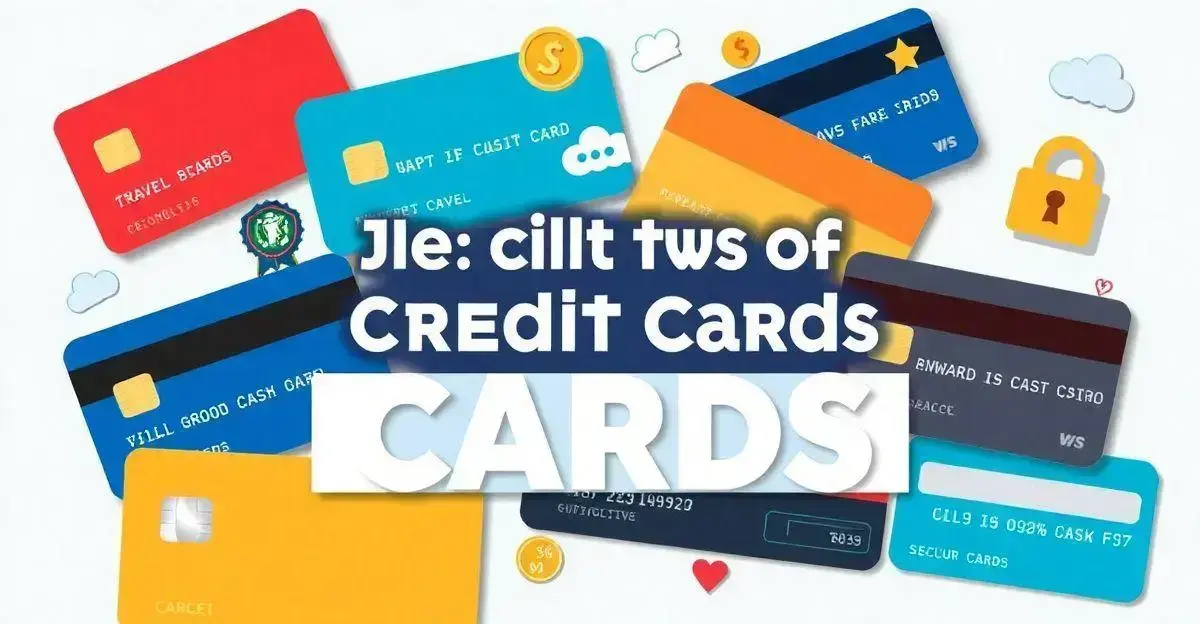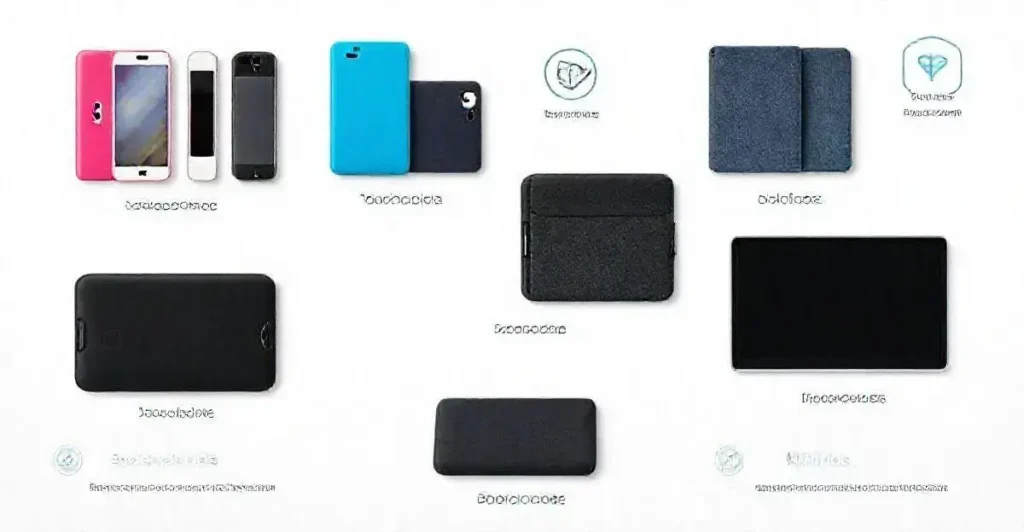Choosing the right credit card can significantly impact your financial health. With a wide range of options available, it’s important to understand how each card works and what benefits it provides. The right card can help you save money, earn rewards, and manage debt more efficiently.
Each credit card offers different features such as rewards programs, low-interest rates, and various fees. Understanding the details of what each card provides will allow you to make a decision that suits your spending habits and long-term financial goals. Knowing what to look for is key to finding a card that works best for your lifestyle.
Read on to discover essential tips for comparing credit card offers, understanding their features, and choosing the perfect one for your financial needs. You’ll learn how to evaluate rates, rewards, and fees to make a smart choice.
Understanding Credit Card Basics
Understanding credit card basics is crucial for managing your finances. A credit card allows you to borrow money from a financial institution to make purchases, with the agreement that you will pay it back later.
It’s essential to grasp key terms such as credit limit, which is the maximum amount you can borrow, and interest rate, the cost of borrowing money expressed as a percentage. Choosing the right credit card involves evaluating these factors to ensure that you are selecting the most beneficial option for your financial situation.
When you use a credit card, you can either pay the balance in full each month to avoid interest or carry a balance, which incurs additional charges. Credit utilization is another important concept; it refers to the ratio of your credit card balances to your credit limits. Keeping this ratio low can help maintain a good credit score.
New credit card holders should familiarize themselves with rewards programs. Many cards offer cash back or points for purchases, which can provide added value. However, it’s important to read the fine print and understand any fees associated with these cards, such as annual fees or foreign transaction fees.
Understanding how credit cards work is essential for responsible credit management. Knowing the basic terms and concepts will empower you to make informed decisions and leverage credit cards to your advantage.
Types of Credit Cards Explained

Types of credit cards can vary widely, and each serves a different purpose. Understanding these options is vital for choosing the right credit card for your needs.
- Rewards Credit Cards: These cards offer points, cash back, or miles for every dollar spent. If you travel frequently or spend a lot on everyday purchases, a rewards card may maximize your benefits.
- Balance Transfer Credit Cards: Designed to help you pay down existing debt, these cards usually offer low or 0% interest rates for a limited time. This can reduce the cost of your debt significantly, making it easier to pay off.
- Secured Credit Cards: Ideal for those with no credit history or poor credit, secured cards require a cash deposit that serves as your credit limit. This can help build or rebuild credit when used responsibly.
- Student Credit Cards: Tailored for young adults who are beginning their credit journey, these cards often have lower credit limits and may offer rewards incentives. They help students establish credit history with manageable spending.
- Business Credit Cards: Designed for business expenses, these cards can help manage cash flow and track expenses. They often come with features tailored to businesses, such as higher limits and expense management tools.
- Low-Interest Credit Cards: These cards focus on keeping interest rates low, making them a good choice if you plan to carry a balance. They can save you money in the long run compared to cards with higher rates.
In summary, understanding the different types of credit cards is essential for making informed financial decisions. Each type serves unique purposes, so consider your spending habits and financial goals when choosing the right credit card.
How to Compare Credit Card Offers
When it comes to comparing credit card offers, there are several essential factors to consider. First, look at the annual percentage rate (APR). This rate determines how much interest you will pay if you carry a balance. A lower APR is generally better. Promotional rates may also be available, so check how long those last.
Next, analyze the fees associated with the card. Common fees include annual fees, late payment fees, and foreign transaction fees. Some cards may have no annual fee, making them more appealing if you plan to keep the card for a long time.
Don’t forget to evaluate the reward structure. Different cards offer various rewards such as cash back, travel points, or miles. Choose a card that fits your spending habits to maximize benefits.
Another critical factor is credit limits. Higher limits can be beneficial for managing larger purchases while keeping your credit utilization ratio low. It’s important to find a balance that works for your budget.
Lastly, read customer reviews and research the customer service offered by the issuer. Good customer service can make a significant difference, especially if you encounter issues or have questions about your account.
In summary, comparing credit card offers requires careful consideration of various factors to ensure you select the best option for your financial needs. Choosing the right credit card involves evaluating APR, fees, rewards, limits, and customer service to find the card that best matches your lifestyle and goals.
Important Factors to Consider
When choosing the right credit card, there are several important factors to consider. Each factor can influence your overall satisfaction and financial health.
- Interest Rates: The annual percentage rate (APR) is critical. A lower APR means you will pay less interest if you carry a balance. If you plan to pay your balance in full, a higher APR may not matter as much.
- Fees: Look for any hidden fees. Common fees include annual fees, foreign transaction fees, and late payment fees. Some cards charge no annual fee, making them ideal for occasional users.
- Rewards Programs: Consider what rewards are offered. Some cards provide cash back, while others offer points for travel. Choose a program that aligns with your spending habits.
- Credit Limit: A higher credit limit can be beneficial but manage it wisely. Keep your credit utilization below 30% for a good credit score.
- Customer Service: Research the issuer’s customer service reputation. Good support can help you resolve issues quickly and efficiently.
- Additional Perks: Some cards come with extra benefits like travel insurance or purchase protection. Evaluate these perks to see if they are helpful for your needs.
Understanding these factors can lead you to make an informed and beneficial choice when selecting your credit card.
Maximizing Credit Card Rewards
Maximizing credit card rewards can significantly enhance your spending benefits. Here are some strategies to consider:
- Select the Right Card: Choose a credit card that aligns with your spending habits. For example, if you spend heavily on groceries, consider a card that offers cash back or points for grocery purchases. Choosing the right credit card ensures that your spending aligns with the card’s benefits.
- Understand the Reward Structure: Familiarize yourself with how rewards are earned. Look for cards that offer bonus points for specific categories, like dining or travel.
- Use Rewards Wisely: Redeem rewards in ways that maximize value. For travel rewards, booking flights through the card issuer’s portal can yield higher points or discounts.
- Take Advantage of Sign-up Bonuses: Many cards offer attractive bonuses for new users who meet certain spending thresholds within initial months. Plan your purchases to take full advantage of these offers.
- Stay Within Budget: While maximizing rewards is tempting, it’s essential to spend within your budget to avoid interest charges that can negate rewards.
- Pay Off Your Balance: To truly benefit from credit card rewards, always pay off your balance in full. This will keep you from accruing interest while allowing you to enjoy the rewards.
By following these tips, you can effectively maximize your credit card rewards, making the most out of your daily spending.
Common Mistakes to Avoid
- Late Payments: Missing a payment can lead to late fees and increased interest rates. Set up automatic payments or reminders to ensure you pay on time. Choosing the right credit card with manageable terms can also help prevent late fees.
- Carrying a Balance: Carrying a high balance can result in significant interest charges. Aim to pay off your balance in full each month.
- Ignoring Terms and Conditions: Each credit card has specific terms. Understanding these can prevent unexpected fees and charges. Read the fine print carefully.
- Applying for Too Many Cards: Frequent applications can harm your credit score. Only apply for credit when necessary.
- Using Credit for Daily Expenses: While it’s okay to use credit for purchases, relying on it for everyday expenses can lead to debt. Stick to a budget and avoid overspending.
- Not Tracking Rewards: Many cards offer rewards for using them. Failing to monitor and redeem these can lead to missing out on benefits.
- Forgetting to Cancel Unused Cards: Keeping unused credit cards can affect your credit score. Regularly review your accounts and close those you no longer need.
- Conclusion: By being aware of these common mistakes, you can use credit cards more effectively and avoid unnecessary financial troubles.
Tips for Responsible Credit Card Use
- Pay Your Balance in Full: To avoid interest charges, always pay off your balance each month. This helps maintain a good credit score and prevents debt. Choosing the right credit card with a manageable interest rate can also make this task easier.
- Make Payments on Time: Late payments can lead to hefty fees and can damage your credit score. Set up reminders or automated payments to ensure you’re never late.
- Keep Track of Your Spending: Regularly monitor your purchases to stay within your budget. This can be done through mobile apps or online banking features.
- Use Rewards Effectively: Take advantage of your credit card’s rewards program. Redeem points or cash back for items you would normally purchase to maximize benefits.
- Be Cautious with Cash Advances: Avoid using credit cards for cash advances, as they often incur high fees and interest rates. Instead, use your card for regular purchases.
- Know Your Credit Limit: Be aware of your credit limit and try to keep your spending below 30% of this amount. This helps maintain a healthy credit utilization ratio.
- Review Statements Regularly: Check your monthly statements for accuracy. Report any unauthorized charges immediately to your card issuer.
- Following these tips can help you use your credit card wisely and avoid common pitfalls associated with credit card debt.
Frequently Asked Questions About Choosing the Right Credit
How can I avoid credit card debt?
To avoid credit card debt, pay your balance in full each month and stay within your credit limit. Choosing the right credit card with manageable fees and a low-interest rate can also help prevent debt accumulation.
What should I look for when choosing the right credit card?
Look for the card’s interest rates, fees, rewards programs, and any additional benefits that suit your lifestyle.
How do I maximize my credit card rewards?
Maximize rewards by selecting a card that aligns with your spending habits and redeeming rewards strategically.
What are the risks of cash advances?
Cash advances often come with high fees and interest rates, so it’s best to avoid them unless absolutely necessary.
Can I improve my credit score using credit cards?
Yes, using credit cards responsibly, such as making on-time payments and keeping utilization low, can improve your credit score.
Is it safe to use a credit card for online purchases?
Using credit cards for online purchases can be safe if you shop from reputable sites and monitor your statements for unauthorized charges.


